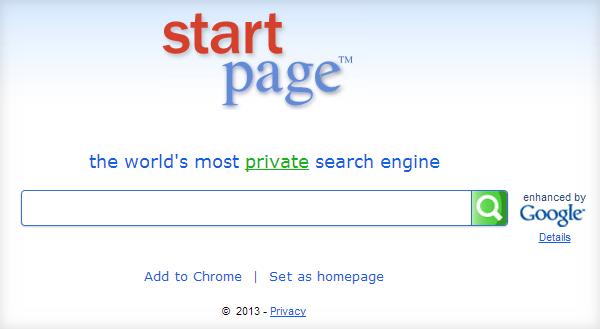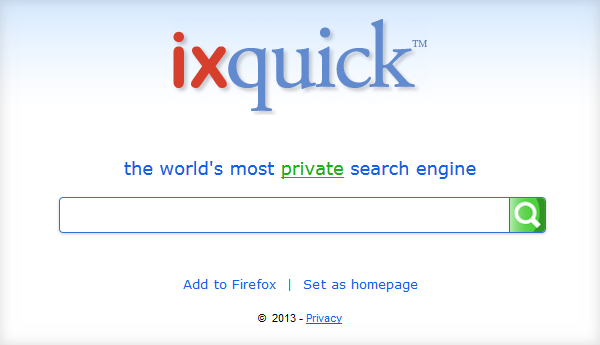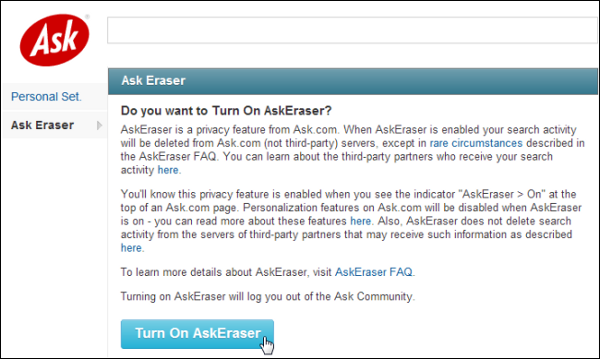Every major search engine on the planet is a tracker. For instance when you do a Google search, enough data including cookies is sent to Google that can uniquely identify you as a person, your computer and your browser.
More importantly, your search history is stored and analyzed continuously to build a profile. Sophisticated algorithms use this data to calculate your behavior patterns and serve the type of ads you are most likely to click on.
But almost anybody including me knows this and would say - oh, that's ok. There's nothing bad about seeing some interesting ads. But the not-so-good part is -
- This data gets shared with third parties too. Didn't you notice getting calls from insurance agents after you search and explore insurance related stuff?
- Google can't resist sharing this data including your search history with government agencies on-demand.
If you are tired of getting tracked, here are a few Google alternatives you can use-
Search Engines That Respect Your Privacy
1. DuckDuckGo
DuckDuckGo is the most popular search engine which is 100% privacy protected. It doesn't use cookies, discards HTTP headers and even removes any ip address from being logged in it's server logs. You can read their privacy policy for details.
 That means with DuckDuckGo, you and somebody else who searches for the same thing 100 miles away will see the exact same results. Far from identifying real people, it doesn't even attempt to make anonymous profiles of it's users as well. Needless to say, there is no search history in DuckDuckGo. In the donttrack.us page, DuckDuckGo explains what makes them special compared to Google and others in a really funny way.
That means with DuckDuckGo, you and somebody else who searches for the same thing 100 miles away will see the exact same results. Far from identifying real people, it doesn't even attempt to make anonymous profiles of it's users as well. Needless to say, there is no search history in DuckDuckGo. In the donttrack.us page, DuckDuckGo explains what makes them special compared to Google and others in a really funny way.

DuckDuckGo is also the fastest growing anonymous search provider. You can see their traffic details page showing monthly traffic details. Immediately after NSA backed PRISM program came to public light, DuckDuckGo's monthly traffic spiked from 2 million to 3 million searches in July 2013.
2. StartPage
Start page is another great tool if you are privacy hungry, but don't want to leave Google. Startpage itself is not a real search engine. It just does Google search for you. Your search text is sent to the Startpage server which in turn does a Google search and returns the results to you. For Google, it's like startpage server is searching and you are not in the picture at all. So none of the search results or cookie is tied to you.
Like DuckDuckGo, startpage also doesn't use cookies and discards all IP addresses and HTTP headers for every search request.
3. IXQuick
IXQuick is the main search engine that drives StartPage. The difference is that IXQuick pulls it's results from many sources and not just Google. This makes the results look a bit different compared to pure Google, but gives a different experience altogether.
IXQuick's anti-government-surveilence page details there are no back-doors and how they haven't given government agencies including PRISM even a single byte of data.
4. AskEraser
Ask.com has an opt-in feature called AskEraser which you can enable from the settings page. According to Ask.com, with AskEraser enabled, no private information is collected and search activity will be deleted automatically.
Compared to others like DuckDuckGo, StartPage or IXQuick, the terms are a little vague. There is a clause for storing search activity under special circumstances and there is no mention on what would happen if government agencies demand your data.